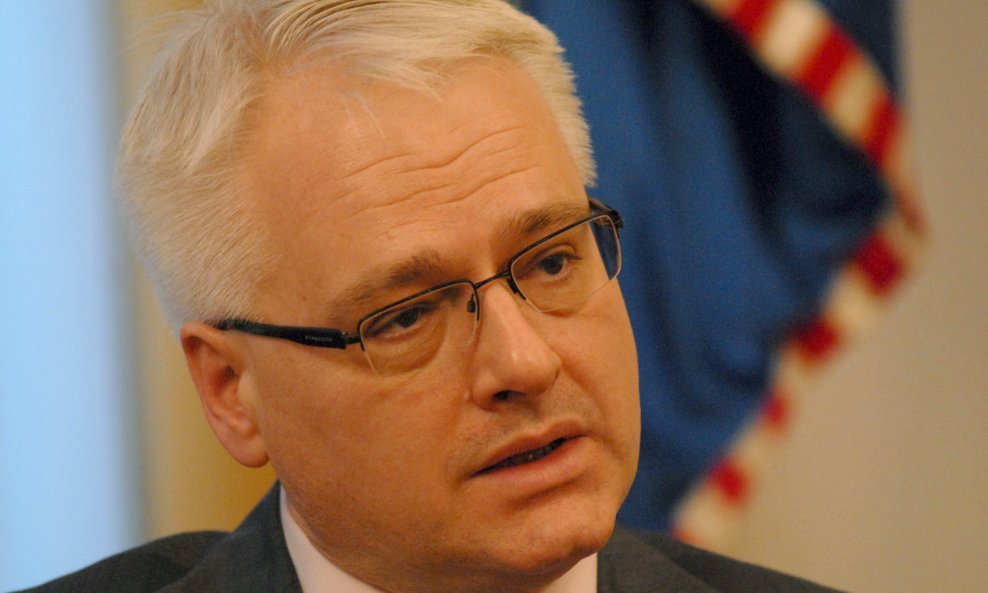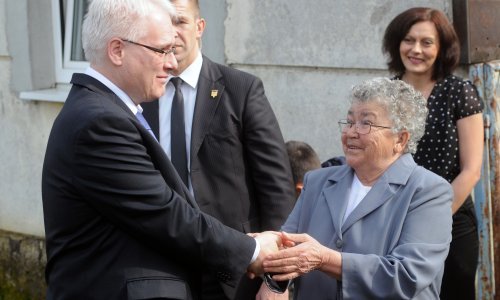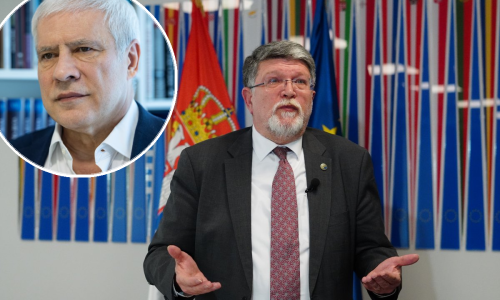Croatian President Ivo Josipovic told the Belgrade-based weekly Nin in an interview published in its latest edition that relations between Croatia and Serbia were visibly better than two or more years ago, but that there still remained a lot of unresolved issues.
Josipovic said that the two countries had created a good foundation to tackle those serious issues one by one.
When asked if there was enough political will on both sides to close issues such as war reparations, mutual lawsuits for genocide, and war crimes trials before national courts, Josipovic said that, together with the fate of missing persons from the war, those were the most important issues.
On the subject of missing persons, Josipovic said that the number of missing persons from the 1991-1995 war was slowly being determined, adding that over 1,800 people, both Croats and Serbs, remained unaccounted-for and that chances of any of them being alive were slim.
"The issue of the genocide lawsuits, in my opinion, is exaggerated in politics. The public in both countries is very sensitive to that issue, and so are the politicians. Besides, the reach of the lawsuits may be overestimated in relation to what is believed they will achieve. You have mentioned war reparations. Many are mistaken to think that war reparations will be settled by the genocide lawsuit," Josipovic said, adding that such expectations were legally and politically unfounded.
"The lawsuits are within the authority of the government, at least the Croatian one is. It has always been my view that problems can be settled better and more effectively without judicial intervention. Of course, there should be political conditions for that. Our relations are developing, many issues are still open, but what is important is that all of it is happening in a much more favourable political climate than before," the Croatian president said.
When asked if Croatia would obstruct Serbia on its path towards EU membership over the border on the Danube, Josipovic replied: "It won't!" recalling that the Croatian Parliament had passed a special declaration saying that Croatia, as a forthcoming member of the EU, will not abuse its status to resolve bilateral issues and disputes with its neighbours.
"As for the border on the Danube, or Croatia's border with Bosnia and Herzegovina and with Montenegro, I advocate dialogue, because negotiations are the best way. The border on the Danube is a typical example. It has no major political connotations and is not causing any problems, so we should simply discuss it. But if everyone remains entrenched in their positions, we will hardly reach an agreement," he said.
Responding to the interviewer's remark about objections in some quarters to his frequent meetings with Serbian President Boris Tadic because in that way he was apparently leading Croatia back to the Balkans instead of Europe, Josipovic said he did not mind at all the assessments that he was meeting with Tadic too often. He added that he had met with Slovenian President Danilo Tuerk several times, as well as with members of Bosnia and Herzegovina's collective presidency.
Josipovic said that Croatia had partner relations with Serbia, Bosnia and Herzegovina, Montenegro, and other neighbours, and that this fact had helped Croatia receive a positive opinion in accession negotiations with the European Union.
Commenting on the interviewer's remark that some people in Croatia regarded him as a "Serbophile" or "Yugonostalgic", Josipovic said he did not know anyone personally who would want to restore Yugoslavia, but that he knew many people who wanted friendly and good neighbourly relations.
































